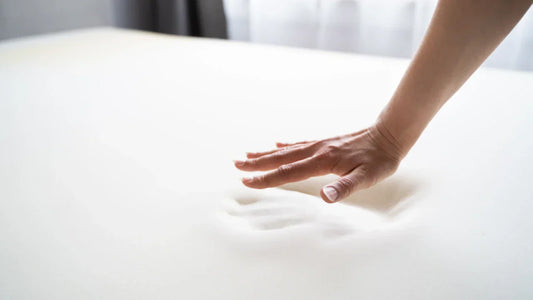This Thursday (June 24 2021), we will see a Super Solstice Strawberry Moon! Sounds exciting, doesn't it?
However, with the coming of this moon, many of us might be anticipating a rather strange night’s sleep. If this sounds familiar, don’t worry – it’s not just you! Over time, there have been many studies looking into the possible effects of a full moon on our sleep patterns. Almost each one concluding that the full moon does disturb a good night’s sleep.
Scientific research carried out on volunteers during a full moon found that people generally take longer to fall asleep, spend less time in deep sleep, and report poor sleep during this moon phase.
Why Does a Full Moon Disrupt Our Sleep?

There have been many suggestions made about why a full moon affects our sleep quality.
Some people blame the extra moonlight shining in through our windows. Others suggest it’s an evolutionary reason dating back from our caveman ancestors. The logic being that we would sleep less during a full moon as a survival technique because we would be much more noticeable to predators during these lighter nights.
From an astrological point of view, it seems fairly logical why the moon effects our sleep. The gravitational pull from the moon controls the tides of the ocean on earth. And as we humans are made up of up to 70% water, there is little surprise that our bodies should be affected by these lunar phases too.
This “lunar effect” has also been linked to changes in women’s monthly cycles, as well as bad moods and aggressive behaviour. (The term ‘lunatic’ is actually derived from a Latin word meaning ‘moonstruck’)
Strange Dreams & Full Moons

When it comes to weird and wonderful dreams, it seems that many people experience more of them during the night of the full moon. This could be caused by spending more time in the REM stage of sleep, which is when those dreams tend to occur.
In 2014, Psychologist Professor Richard Wiseman announced the results of a two-year study into dreams, aiming to reveal how to create the perfect dream. His research featured 1000 volunteers and as part of his results, he revealed that when there is a full moon, the production of the sleep-inducing hormone, melatonin, is largely affected. In turn, this means that we spend the night of the full moon working more intensely through our concerns, resulting in more vivid dreams.
"In 2013, neuroscientists from the University of Basel discovered that people experience more disturbed sleeping patterns around the time of a full Moon," remarked Wiseman. "We have seen a similar pattern, with more bizarre dreams being associated with a full moon."
Preparing for Better Sleep During the Full Moon

If you think that your sleep could be affected by the moon, then why not try writing a ‘moon diary’ to track monthly patterns through the different lunar phases? During the days leading up to a full moon, it might also be worth spending a bit of extra time preparing for bedtime and relaxing more than usual before sleep. Practicing some gentle yoga, rubbing some lavender oil on your pulse points and taking some long, deep breaths through your nose will all help to feel relaxed and more prepared for a good night’s sleep.
Avoiding alcohol and caffeine around this time can also help to improve sleep quality and reduce the disturbance to your usual sleep patterns.









